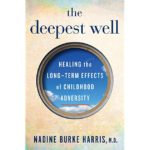Susan Cain’s 2013 book Quiet focused teacherly attention on students’ introversion.
In Cain’s telling, schools valorize extraversion over introversion.
We praise and reward the outspoken student. We worry over the quiet student. Often we champion group discussion and teamwork, and look askance at soft-spoken, individual effort.
Whatever the truth of these concerns, this framework rests on the unspoken assumption that introverts and extroverts remain constant in their identities. Introverts act introverted most (or all) of the time. Extraverts are the life of every party.
What if that weren’t true? What if we could deliberately act more one way other the other?
But, Why Are You Asking?
Before we investigate those questions, we should ask a more basic one: why bother? Why encourage extraverts to act like introverts?
It turns out that, on average, extraverts feel happier than introverts do. (Psychologists typically speak of “well being” more than happiness. And, they’ve got fancy terms to define and measure it. But, at the end of the day, extraverts experience more of the good stuff than the introverts do.)
So, if we could help introverts be more extraverted, would they feel happier?
And, by the way, happy people get other benefits. In Csikszentmihalyi’s terminology, they experience flow state more often. In Deci and Ryan’s terminology, they experience connectedness, autonomy, and competence more often.
And so, researchers ask this question as a way to promote happiness, and all the good things that come with it.
The Research, the Results
Seth Margolis and Sonja Lyubomirsky asked 130 college students to act more extraverted for a week, and then more introverted for a week. (Half went in that order; the other half went in the reverse order.)
They did all the things you’d want researchers to do. For instance: they took care to describe introverted and extraverted behavior equally positively. (That’s hard to do, in a culture that valorizes extraversion.)
What did they find?
Margolis and Lyubomirsky kept track of roughly 2 dozen variables, and so they’ve got LOTS of results to report. The headlines:
When these students acted more extraverted, they experienced more positive affect. When they acted more introverted, they experienced less.
Also, back to Csikszentmihalyi: they experienced flow more often when acting extraverted, and less often when acting introverted.
Back to Deci & Ryan: they experienced connectedness more often when extraverted.
Extraversion, however, had weak or inconsistent effects on life satisfaction, and Deci & Ryan’s competence.
But basically, extraversion–even forced extraversion–produced lots of benefits over the week.
Lots of Caveats
Margolis and Lyubomirsky have done unusual work here. For one thing, psychology studies rarely last two full weeks.
For that reason, we’ll want to look out for follow-up studies to see if other researchers arrive at similar conclusions.
Also, they emphasize that their data come from self-report–a kind of measurement that’s inherently less reliable than other kinds.
Those caveats (and many others) acknowledged, I think this study highlights encouraging possibilities.
First: people can successfully change their behavior. Even though I might incline to introversion, I can push myself to act extraverted. And when I do, I get the happiness benefits that extraverts get.
Second: in highlighting extraversion, schools might not be harming introverts as much as Cain worried. If, in fact, extraverts feel happy (and experience flow; and feel greater connectedness) more often than introverts, we might not be harming introverts by nudging them out of their comfort zones.
I should emphasize, this second point is my own: neither stated nor implied by Margolis and Lyubomirsky. And, I could be entirely wrong. Perhaps a week-long experiment in extraversion is beneficial for introverts, but more than a week is draining. Or, perhaps voluntary extraversion produces these benefits, but school-required extraversion doesn’t.
In any case, I think we can usefully rethink questions about introverts and extraverts in school.
Admitting My Bias
As you read this post–which seems to champion extraversion–you might wonder where I myself fall in this dichotomy. That is: am I promoting extraversion simply because I’m an extravert?
The answer is: I am a little bit of both.
If you meet me as a presenter at a Learning and the Brain conference, you’ll see my extraverted side. In that professional setting, I’m comfortable putting on my loud-in-public persona.
If you meet me at a cocktail party, you’ll definitely see my introverted side. I’ll be in the corner having a deep conversation with one person. I certainly won’t be introducing myself to strangers, and telling raucous jokes to a room of on-lookers. (Who am I kidding? I rarely go to cocktail parties, because my introverted side doesn’t like small talk.)
In brief: I’m not championing extraversion because I’m an extravert.
I’m inviting readers to rethink the very belief that extraverts and introverts are two different species. I think we’re all a bit of both.
And, if we can help our students (and ourselves) by encouraging extraversion, then schools and teachers should know the good we can do.





There are some interesting points in what you post that match my own experiences. I consider my self an introvert who has been forced to develop skills for “simulating” extraversion. I am most happy when I am left alone to work on projects or to share some quality time with my wife, daughter, or a very small set of friends. I don’t like parties, group dinners, or other forced social gatherings. I don’t want to be the focus of these events. I am not clamoring for attention. But as a very senior engineer engaged in cross-group and cross-company projects, I must build critical social networks with trusted colleagues and that may require face-to-face meetings with lots of air travel. I have to be more vocal, engaged, and extraverted in meetings, conferences, or when I am giving presentations. But it is draining and by the end of the day, I just want to retreat to a private place and “recharge”. I am in my late fifties, so I have been managing this for many years.
I wish this was posted (or at least copied over to) Medium so I could leave a few “claps” and you could monetize readership!
Like both you and fellow commenter Fred, I find myself oscillating between both ends, but ultimately do believe that extroverts tend to live happier lives.
Perhaps introverts spend more time in their heads which can lead to self-criticism, but introversion is certainly far from “bad”. My best ideas arrive (I’m a product creator & business owner) when I’m sitting in a room alone, in an environment some may call “boring” or even “depressing”. There’s a balance.
We must respect individuals on both ends of the spectrum, as with all people. And, despite my statement above that extroverts tend to live happier lives, the world still needs introverts, their introspection, and the great ideas and innovations that sometimes follow. That’s my opinion at least. Certainly not fact.
Cheers!